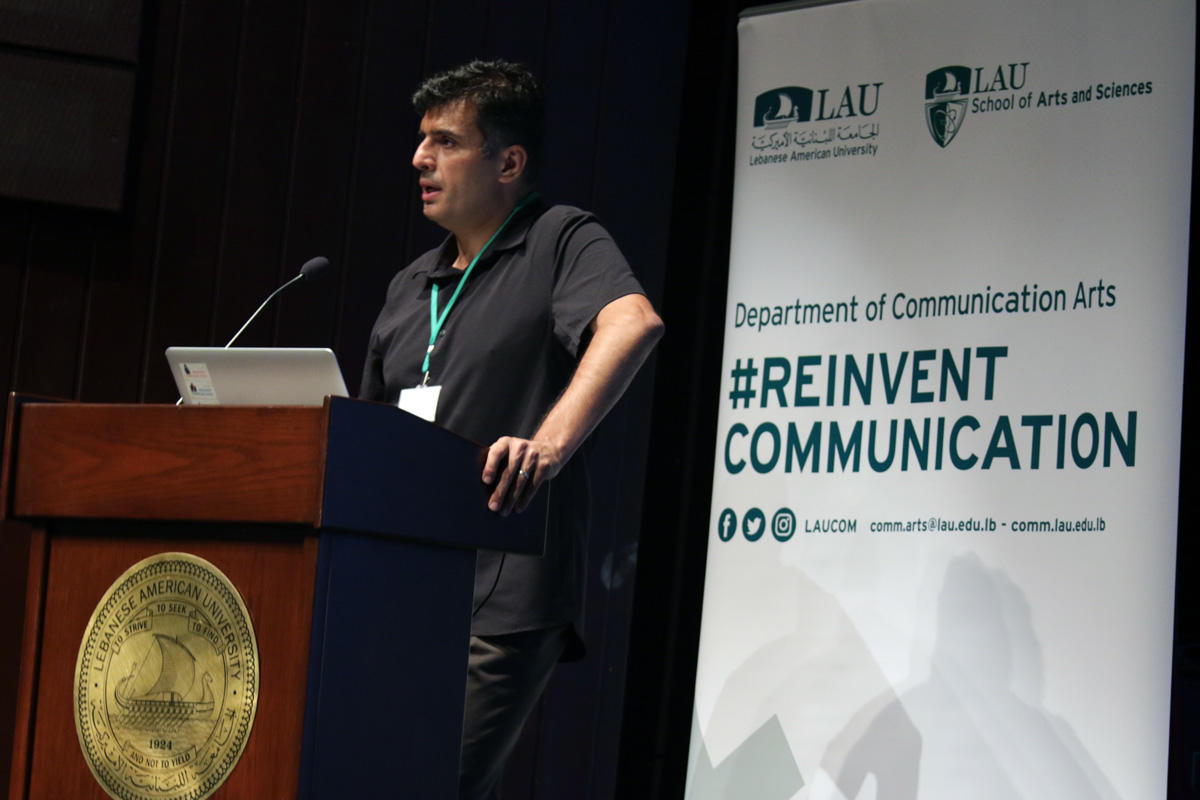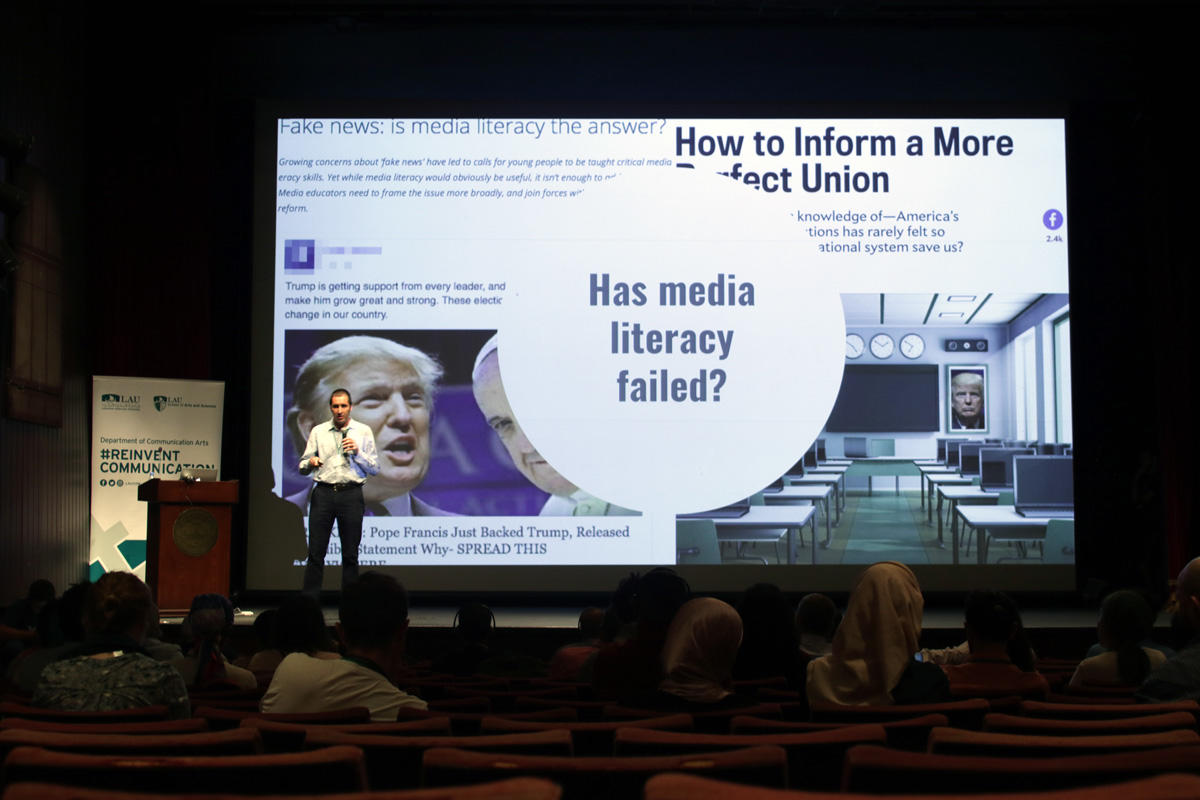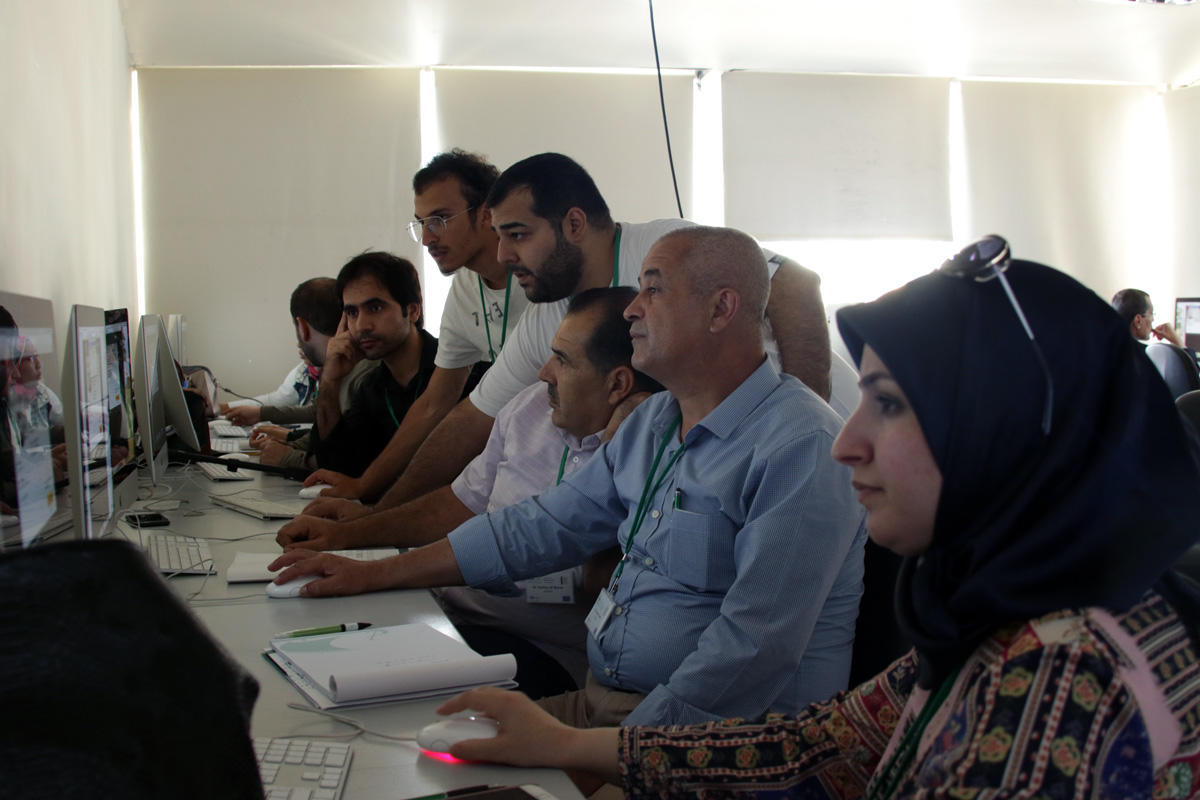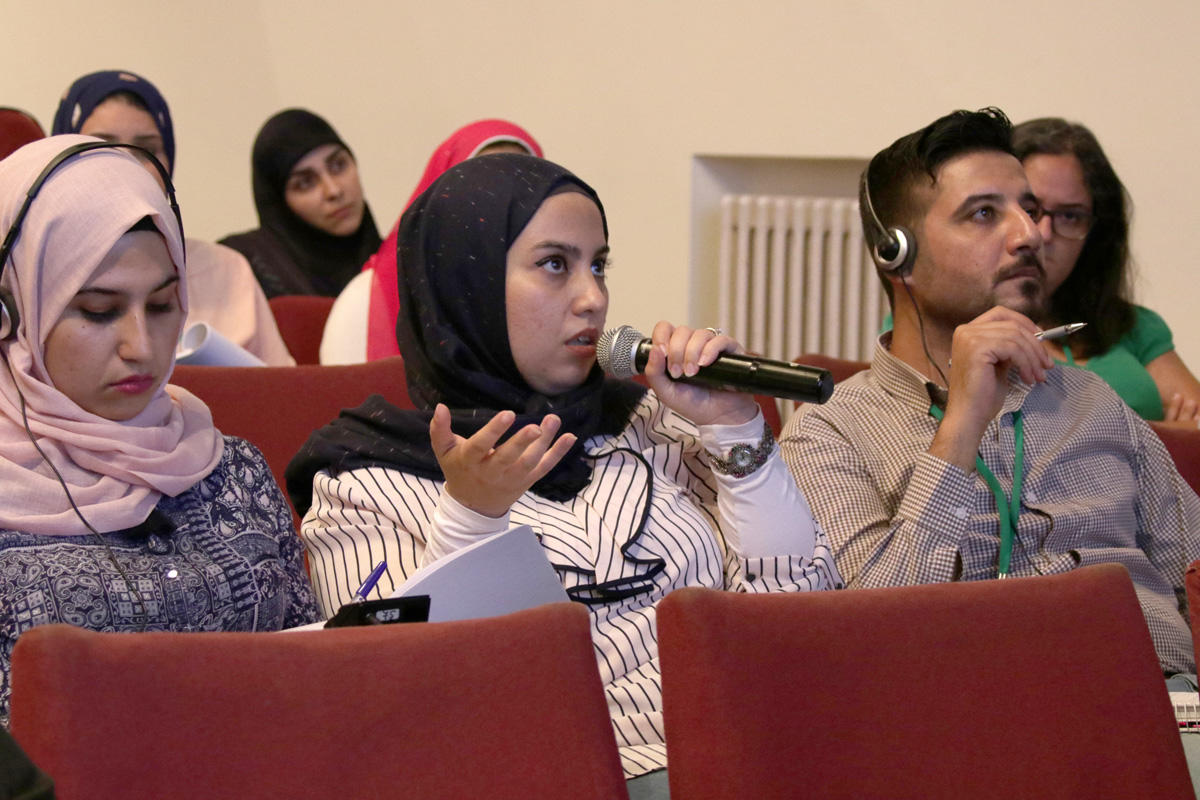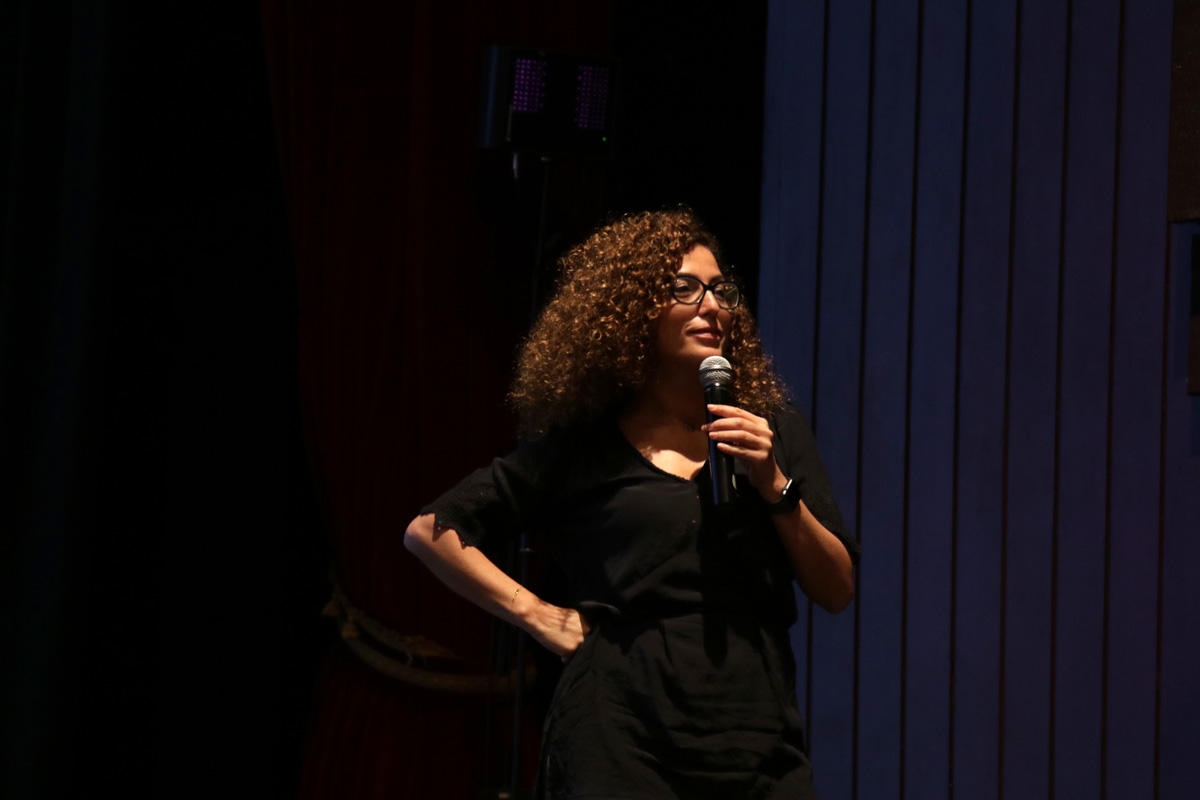MDLAB 2018: Bridging Lebanon with the World
The Media and Digital Literacy Academy of Beirut launched its sixth-annual training program at LAU.
The Media and Digital Literacy Academy of Beirut (MDLAB) launched its sixth-annual training program on August 7 at LAU’s Beirut campus, which consolidates LAU’s role as a driving force in media education in the Arab world and a champion of social justice and critical inquiry into digital and social media practices. The academy will continue until August 17.
MDLAB 2018 is organized by LAU’s Institute of Media Research and Training (IMRT) and sponsored by the Bosch Foundation, Deutsche Welle Academy, the German Academic Exchange Service (DAAD), the European Union (EU), and UNESCO.
This year’s academy brings together 75 faculty, students, journalists, and activists from various Arab and non-Arab countries, including Lebanon, Egypt, Syria, Palestine, Jordan, Iraq, Algeria, as well as Germany, the US, and Bulgaria. The two-week program is at the forefront of the battle to counter extremist ideologies by advancing media and digital literacy education in the Arab region. The academy tackles topics of media, radicalization, human rights, feminism, empowering marginalized communities, and digital security, among others.
MDLAB 2018 kicked off with a welcome speech by Chairperson of the Department of Communication Arts and Founder and Director of MDLAB Dr. Jad Melki, who laid out the academy’s mission to integrate a media literacy curriculum in all universities in the Arab world by 2020.
“LAU is working toward implementing the principles and values of media literacy and disseminating them in the Arab region with the objective of reinforcing critical thinking, responsible media, digital empowerment, civic participation, and social justice,” he said.
“MDLAB is proud to be part of a global network of media literacy educators led by the Salzburg Academy on Media and Global Change. During the six years MDLAB has been operating, over 50 universities and schools in the Arab region have adopted media literacy in their curricula.”
In addition to attending lectures, students and academics at MDLAB take part in workshops on various digital skills, including photo shooting and editing, audio editing and podcasting, video production, and data analytics.
Faculty participants also attend pedagogical workshops led by Dr. Claudia Kozman, MDLAB’s director of research, Dr. Mona Nabhani from LAU’s Education Department, and Dr. Lindsay Palmer from the University of Wisconsin-Madison. These workshops focus on curricular and syllabi development, as well as active and experiential learning methods –methods of teaching that LAU is well known for championing. The goal of these workshops is to equip faculty participants with the skills needed to advance media literacy education at their home universities and to incorporate the latest pedagogical practices in their courses.
“Faculty development has become a crucial component of MDLAB,” said Kozman. “As we try to spread media literacy in the Arab world, it is essential that we also invest in the faculty who are championing these courses in their home institutions. The most effective way to do this is to provide them with the proper tools that create a positive learning environment, which enhances student engagement with the course material.”
In another lecture, Associate Professor of Journalism Studies at Emerson College Dr. Paul Mihailidis, director of the Salzburg Academy and associate professor at Emerson College, discussed the opportunities and challenges of media literacy around the globe.
The second day of the academy unfolded with a talk by LAU Assistant Professor of Media Studies Dr. Gretchen King, who spoke about the political economy of news, highlighting issues of colonialism and imperialism in the media.
The correlation between media and gender was also one of the academy’s dominant themes. In one lecture, Melki spoke about the media’s role in the normalization of rape culture, subservience, unattainable physical beauty standards and thinness, among others, which reinforce the sexual objectification of women.
“I am super impressed with the topics picked for the sessions because they are highly diverse and are less tackled in the Arab world,” said Egyptian participant Rana Khaled, who is a PhD student at the University of Logan in Switzerland.
The lectures on gender are an opportunity “for people from all over the Arab world to understand how the media can be highly connected to gender, and how social norms and values influence how people perceive media and gender, and vice versa,” said Khaled, who is also a writer for the Oxford University-led European Observatory.
“Honestly, it has exceeded expectations. I imagined the style of lectures was going to be a little bit classic, but it is very interactive, and the topics are very new,” said Palestinian participant Ramz Shalbak, who works in communication and knowledge management at the United Nations Population Fund in New York.
She was particularly happy with the workshops, which were “a good experience for someone who does not have a technical background to learn about video editing and photography.”
Shalbak also saw in the academy a valuable opportunity to network with media professionals and academics from the region. “I think the main goal of being here is to try to create change in the media region,” she said.
“If the change is not interrelated, it will not have the highest impact, so starting from the bottom with a good strong network that the MDLAB is facilitating is going to create a real change.”
During the second week of the academy, participants will work on their final projects, demonstrating the potential to spread media literate campaigns throughout the Arab world.
MDLAB will conclude with the presentations of projects, the distribution of certificates and a closing ceremony.
For the full program of MDLAB 2018 go to https://goo.gl/zqq5DU. All morning sessions are open to the public.
